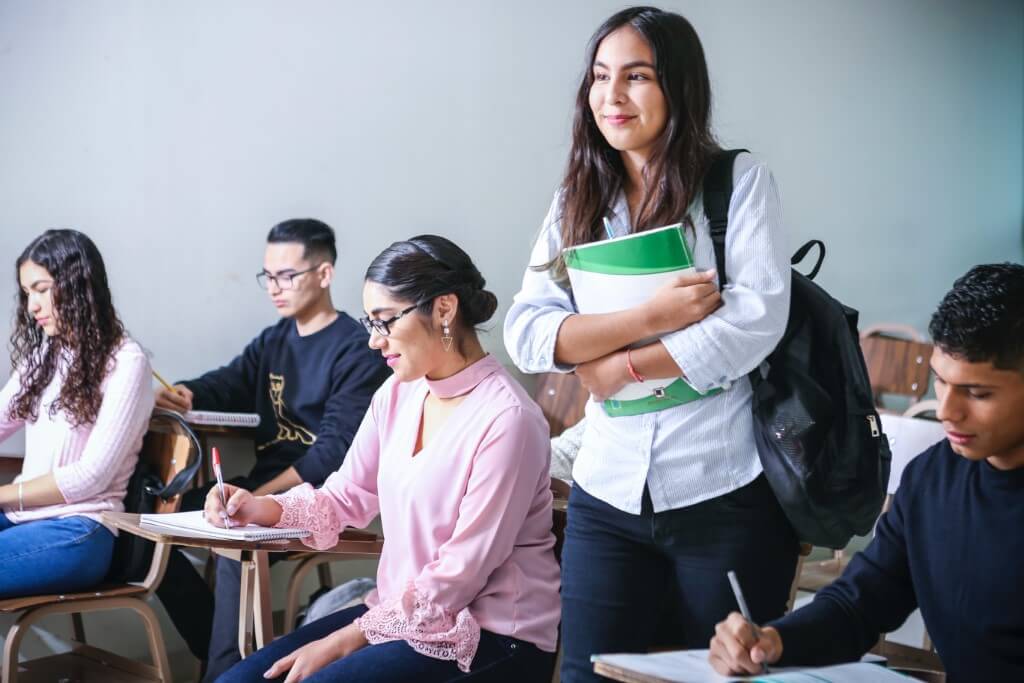At the heart of this evolution lies the concept of an innovative learning experience. Within the classroom, innovation flourishes through an array of instructional strategies meticulously designed to elevate student engagement. These strategies encompass the development of creativity, the promotion of collaborative endeavors, and the immersion in real-world issues. By immersing learners in these dynamic environments, the learning process transcends the boundaries of textbooks, creating a profound and lasting impact.
By encouraging students to tap into their imagination, lessons become more than just facts to be memorized. Instead, learners actively explore the content, delving deep into its intricacies. Furthermore, the integration of collaborative group work empowers students to demonstrate their grasp of the material, solidifying their comprehension and retention. This shift from passive reception to active participation lays the foundation for a more dynamic and effective educational experience.
Embracing a Dynamic Educational Landscape
In envisioning the future, the impact of Rethinking Learning and embracing innovative educational strategies is poised to be transformative. This paradigm shift holds the potential to revolutionize the way we approach education, both in South Africa and globally. By placing emphasis on active participation and immersive learning experiences, students become architects of their own knowledge. This empowers you to not only absorb information but to apply it in practical, real-world contexts.
Nurturing Lifelong Learners
The adoption of innovative teaching techniques cultivates a culture of lifelong learning. By instilling a sense of curiosity and a passion for exploration, education becomes a continuous journey. The skills acquired through these methods are not confined to the classroom but become invaluable tools for navigating an ever-evolving world. As a result, you are better equipped to adapt to new challenges, seize opportunities, and contribute meaningfully to society.
Fostering Critical Thinking and Problem-Solving
Rethinking Learning places a premium on critical thinking and problem-solving skills. Through engaging with material in a dynamic and interactive manner, you’re encouraged to analyze, evaluate, and synthesize information. This process equips you with the ability to approach complex issues with confidence and creativity. The ripple effect of this cognitive development extends far beyond the educational sphere, influencing your approach to various aspects of life.
Enhancing Collaborative Aptitude
The integration of collaborative learning experiences not only enriches educational endeavors but also prepares you for a future where teamwork and collective problem-solving are paramount. By working alongside peers in diverse group settings, you’re exposed to different perspectives and learning styles. This not only broadens your understanding but also hones essential interpersonal skills that are invaluable in professional and personal contexts.
Pioneering Innovators and Thought Leaders
Ultimately, the future impact of Rethinking Learning and innovative educational strategies is the cultivation of a generation of pioneers and thought leaders. Through these dynamic approaches, you are not only equipped with knowledge but also empowered with the tools to apply it in groundbreaking ways. By fostering a spirit of curiosity, resilience, and adaptability, you’re poised to shape the future landscape, contributing to advancements and progress in various fields.
Blended Learning: A Fusion of Virtual and Traditional Education
Blended learning is a pioneering approach that seamlessly integrates technology with traditional classroom instruction. In South Africa, initiatives like the e-Learning Programme for Grade 12 learners exemplify this innovative strategy. By providing students with access to online resources and interactive platforms, it augments traditional teaching methods, fostering a dynamic and personalized learning experience.
Project-Based Learning: Real-World Applications in Education
Project-based learning immerses students in hands-on, collaborative projects that mirror real-world scenarios. In South Africa, programs such as the Edu-Peg Project have successfully implemented this strategy. Students are tasked with solving authentic problems, enabling them to apply theoretical knowledge in practical settings. This approach not only enhances comprehension but also instills critical thinking and problem-solving skills.
Flipped Classroom: Restructuring the Learning Dynamic
The flipped classroom model flips the traditional approach to homework and classwork. In South African contexts, the Funda UJabule Programme has integrated this method. Students engage with instructional content at home through multimedia resources, while class time is dedicated to discussions, activities, and problem-solving. This strategy empowers students to take control of their learning pace and style.
Peer Teaching and Collaborative Learning: Empowering Through Partnership
Encouraging peer teaching and collaborative learning environments is a transformative strategy. In South Africa, initiatives like the Partners for Possibility Program foster partnerships between business leaders and school principals. Through mentorship and collaboration, educators gain valuable insights, and students benefit from enriched learning experiences. This strategy not only elevates education but also strengthens community bonds.
Infusing Playfulness into Education
Gamification leverages game elements to make learning more engaging and interactive. In South Africa, the iSchoolAfrica program incorporates gamification into the curriculum. By introducing game-like challenges and rewards, students are motivated to actively participate in their own education. This innovative approach taps into intrinsic motivations, making learning a dynamic and enjoyable endeavor.
Personalized Learning Plans
Personalized learning plans cater to the unique strengths, interests, and learning styles of each student. In South Africa, programs like the WCED ePortal exemplify this strategy. By providing a diverse array of resources and adaptive learning tools, students can progress at their own pace. This approach not only enhances comprehension but also fosters a sense of ownership and empowerment over one’s education.
Emergence of Rethinking Learning Paradigms
The concept of Rethinking Learning emerged as a response to the evolving educational landscape. In recent decades, traditional teaching methods began to face scrutiny for their limitations in fostering holistic learning experiences. This prompted a reevaluation of pedagogical approaches, leading to the birth of Rethinking Learning as a distinct educational philosophy.
Shifting Focus towards Student-Centered Education
Historically, education often adhered to a teacher-centered model, where instructors played a predominant role in disseminating information. However, Rethinking Learning marks a departure from this traditional approach. Instead, it places a heightened emphasis on the learner, recognizing each student’s unique learning style, strengths, and interests. This shift fosters a more personalized and engaging educational experience.
Technological Revolution and Its Impact
The advent of technology catalyzed a significant transformation in educational paradigms. With the proliferation of digital tools and online resources, educators gained unprecedented opportunities to augment their teaching methods. This shift in technological landscape played a pivotal role in the evolution of Rethinking Learning, enabling the integration of innovative strategies to enhance the learning process.
Influential Figures and Their Contributions
Throughout the development of Rethinking Learning, several influential figures have emerged as champions of progressive educational philosophies. These thought leaders, including theorists, researchers, and practitioners, have contributed significantly to the discourse surrounding student-centered education. Their insights and innovations have played a crucial role in shaping the principles and practices of Rethinking Learning.
Global Adoption and Adaptation in South Africa
Rethinking Learning has garnered recognition on a global scale, with educational institutions worldwide embracing its principles. In South Africa, this paradigm shift in education has been met with enthusiasm and adaptability. The country’s educators and policymakers have recognized the potential of Rethinking Learning to address the diverse needs of students and prepare them for an ever-changing future.
Continuous Evolution and Future Prospects
As educators and researchers continue to explore innovative strategies, the landscape of education will inevitably continue to transform. This trajectory promises an exciting future for Rethinking Learning, marked by the continued integration of dynamic, student-centered approaches to education.
Transforming Education for Tomorrow
By embracing technology and personalized approaches, it unlocks a world of potential for students. However, challenges persist, from the need for comprehensive training to ensuring equitable access. Yet, in the face of these hurdles, the promise of a more engaging, adaptable, and inclusive educational future beckons. Rethinking Learning stands as the catalyst for nurturing agile, empowered learners poised to thrive in an ever-evolving world.
If you’re as passionate about this revolution as we are, don’t miss out on the chance to engage further. Reach out through our contact form, and let’s embark on a journey to revolutionize learning together! Your insights and questions are invaluable in shaping the future of education.




